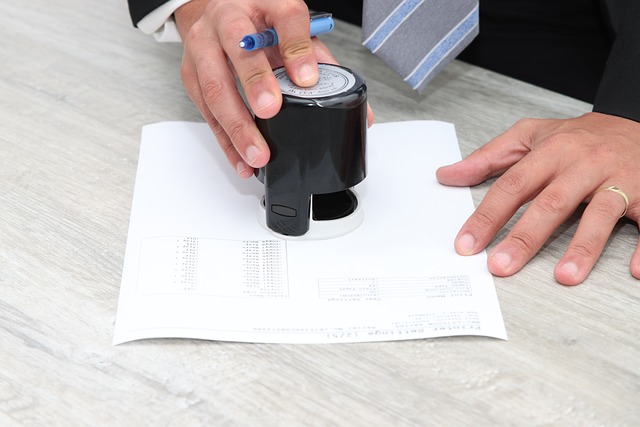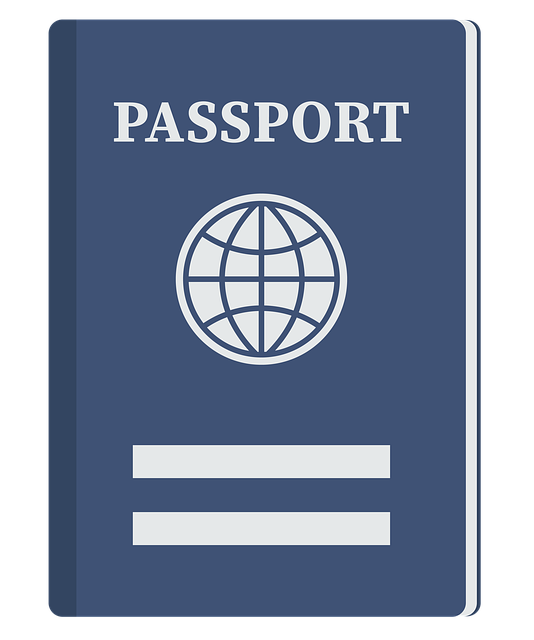TL;DR:
Accurate UK Intellectual Property (IP) Documents translation services are vital to avoid legal issues like contract invalidation and trademark disputes. Strict UK IP laws require nuanced translations beyond word-for-word substitutions, focusing on cultural subtleties and legal terminology. Specialized services employ experts in both languages and IP law, adhering to quality standards like ISO 17100 for accuracy and compliance. Post-translation reviews by subject matter experts are crucial. In a globalized market, these services protect intellectual property rights internationally, as demonstrated by the case of a tech startup's patent misunderstanding due to poor translation. Best practices include regular quality assessments, memory tools, and clear communication.
In today’s globalized landscape, ensuring compliance with translated intellectual property (IP) documents is paramount for legal use. This comprehensive guide delves into the intricacies of navigating the UK’s international intellectual property laws and highlights critical considerations in IP document translation services. From understanding legal implications to choosing the right providers, this article offers essential practices for maintaining compliance throughout the process, ensuring accurate and legally sound translated IP documentation.
- Understanding the Legal Implications of IP Document Translation
- The UK's Intellectual Property Laws and Their International Reach
- Challenges in Achieving Accurate and Compliant Translations
- Essential Elements for Quality Assurance in IP Translation Services
- Choosing the Right Language Service Provider for IP Documentation
- Post-Translation Review: Ensuring Legal Use and Accuracy
- Case Studies: Navigating IP Legalities with Translated Documents
- Best Practices for Maintaining Compliance Throughout the Process
Understanding the Legal Implications of IP Document Translation

When it comes to legal matters, accurate and reliable translation is paramount, especially for UK intellectual property (IP) documents. The implications of poor translation can be far-reaching, potentially invalidating contracts, misrepresenting claims, or even leading to legal disputes. IP rights are complex and highly regulated, making the translation process a delicate task that requires a deep understanding of both the source and target languages and legal systems.
UK IP document translation services must not only render the content accurately but also preserve the legal intent and value of the original documents. This involves more than just word-for-word translation; it entails comprehending the nuances, idiomatic expressions, and cultural references specific to each language. Professionals in this field are tasked with ensuring that translated IP documents remain admissible as evidence in court and comply with the strict standards set by UK law.
The UK's Intellectual Property Laws and Their International Reach

The UK’s intellectual property (IP) laws are comprehensive and well-defined, providing robust protections for inventions, creative works, and unique ideas. These laws form a crucial framework for businesses and individuals operating within the country and seeking to enforce their IP rights. One vital aspect of IP management is ensuring accurate translation of legal documents, especially when dealing with international entities. This is where UK Intellectual Property Documents translation services come into play, offering specialized expertise in navigating complex legal terminology and cultural nuances.
The reach of UK IP laws extends beyond its borders, particularly through international treaties and agreements. These global connections ensure that British inventors and creators have recognition and protection worldwide. Consequently, when translating IP documents for use in foreign jurisdictions, it’s essential to have a deep understanding of both the source and target legal systems. This specialized translation service bridges the gap between different legal traditions, enabling seamless compliance and effective enforcement of IP rights across borders.
Challenges in Achieving Accurate and Compliant Translations

Accurately translating UK Intellectual Property (IP) documents for legal use presents a unique set of challenges. While technical precision is paramount, the nuances of language and cultural context often require nuanced understanding beyond simple word-for-word substitutions. Misinterpretations or inadequate translations can lead to significant legal consequences, including patent invalidation or trademark infringement disputes.
Professional translation services specializing in UK IP documents are crucial for overcoming these challenges. Such services employ translators with specialized knowledge of IP law and terminology, ensuring that the translated documents accurately convey the original intent and meaning. Additionally, they adhere to strict quality control measures, including peer review and proofreading, to catch any potential errors or inconsistencies before final delivery.
Essential Elements for Quality Assurance in IP Translation Services

When utilising UK Intellectual Property Documents translation services, quality assurance is paramount to ensure legal validity and accuracy. Several essential elements must be considered to guarantee high-quality translations. Firstly, translators must possess not only expertise in intellectual property (IP) law but also fluency in both the source and target languages. This ensures a deep understanding of technical terms and concepts related to patents, trademarks, copyrights, and trade secrets.
Secondly, rigorous quality control processes are vital. These include thorough reviews by subject matter experts, who verify the translation’s precision against the original IP documents. Additionally, using professional translation memory tools can help maintain consistency across translations, ensuring that terminology remains uniform throughout all legal documents. This meticulous approach guarantees that UK Intellectual Property Documents are translated accurately, preserving their legal integrity and value.
Choosing the Right Language Service Provider for IP Documentation

When dealing with international intellectual property (IP) matters, accurate and legally sound translated documents are paramount. Therefore, selecting a reputable UK Intellectual Property Documents translation services provider is a critical step. Look for providers with a proven track record in handling complex IP documentation, specializing in technical terminology to ensure precision.
Reputation, expertise, and adherence to industry standards like ISO 17100 are essential markers of quality. Additionally, consider their experience with specific types of IP documents, such as patents, trademarks, and copyrights, to guarantee a deep understanding of the nuances involved in each.
Post-Translation Review: Ensuring Legal Use and Accuracy

After a document has been translated, a thorough post-translation review is crucial to ensure its legal soundness and accuracy in the UK. This step involves subject matter experts who scrutinize the translation for any potential errors or nuances that might have been missed during the initial translation process. The review focuses on critical aspects such as terminology consistency, legal jargon accuracy, and cultural adaptability—ensuring the translated document aligns with UK laws and regulations.
This review process is particularly essential when dealing with complex IP documents, where precise language can significantly impact legal cases. Professional translation services for UK Intellectual Property Documents understand this importance and employ rigorous post-translation checks to guarantee that every detail is captured correctly, thereby facilitating seamless integration into legal proceedings.
Case Studies: Navigating IP Legalities with Translated Documents

In today’s globalized business landscape, companies often deal with intellectual property (IP) documents in various languages. Navigating the legalities of UK Intellectual Property Documents translation services is crucial for ensuring compliance and upholding the integrity of IP rights. Case studies illustrate the importance of accurate translations in protecting patents, trademarks, and copyrights across international borders.
For instance, a tech startup looking to expand its global footprint discovered that an improperly translated patent description led to misunderstandings with potential partners. By enlisting professional UK Intellectual Property Documents translation services, they rectified this issue, ensuring their IP was accurately represented and protected in multiple languages. This case highlights the necessity of meticulous translation when dealing with legal documents, as even minor errors can have significant consequences.
Best Practices for Maintaining Compliance Throughout the Process

To ensure compliance with translated UK Intellectual Property (IP) documents for legal use, it’s essential to implement best practices throughout the process. This includes engaging reputable translation services that specialize in IP documentation and possess a deep understanding of both the language and legal nuances involved. Regular quality assessments and peer reviews can help catch any discrepancies or errors early on.
Maintaining accurate translations requires consistent communication with translators, providing them with clear instructions, original documents, and any relevant context. Additionally, utilizing memory tools and terminology databases ensures consistency across multiple projects. Regular updates and revisions should be made to reflect changes in IP laws and regulations, ensuring that translated documents remain legally sound and compliant.
When dealing with translated UK Intellectual Property (IP) documents, adhering to legal standards is paramount. By understanding the nuances of IP laws, both domestically and internationally, and employing specialized translation services that prioritize quality assurance and compliance, organizations can effectively navigate the complexities of global intellectual property protection. This ensures not only the validity of their documentation but also fosters a robust and legally sound innovation ecosystem. Relying on expert language service providers armed with best practices for post-translation review is key to achieving this, as demonstrated by various case studies.



